If you don't sleep well, you will gain weight! Fast fat accumulation in just 4 days
Eating too many sweets will make you fat, eating too much-fried food will make you fat, drinking too much milk tea will make you fat… It is difficult for the body to be “thin”, and many people are used to throwing the pot to their cravings. In fact, in addition to eating, there are some unexpected factors for fat accumulation.
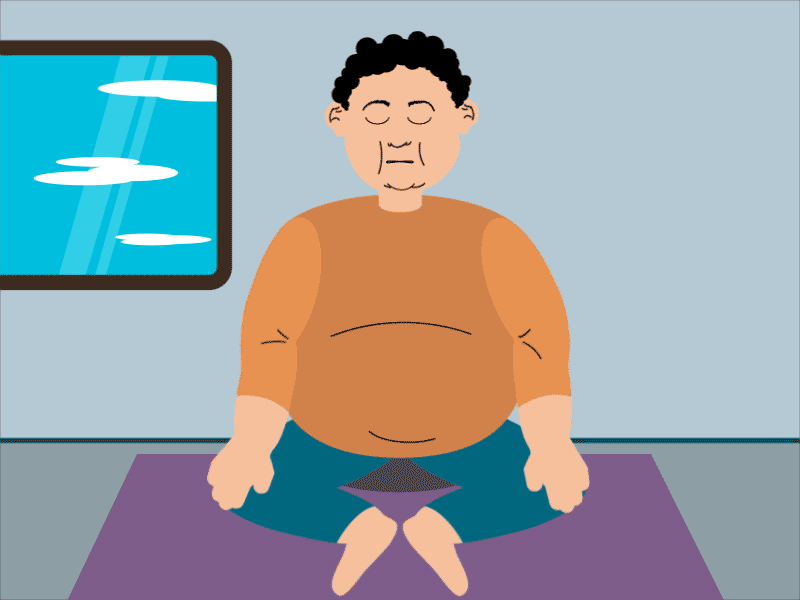
After 4 days of not sleeping well, fat accumulates
A study published in the American “Journal of Lipid Research” showed that 4 days without good sleep will lead to rapid accumulation of body fat and weight gain.
The researchers studied 15 healthy men in their 20s. For the week before the start, the participants got 10 hours of sleep each night at home. During the experiment, the participants ate high-fat, high-calorie food and slept less than 5 hours a night for 4 consecutive days.
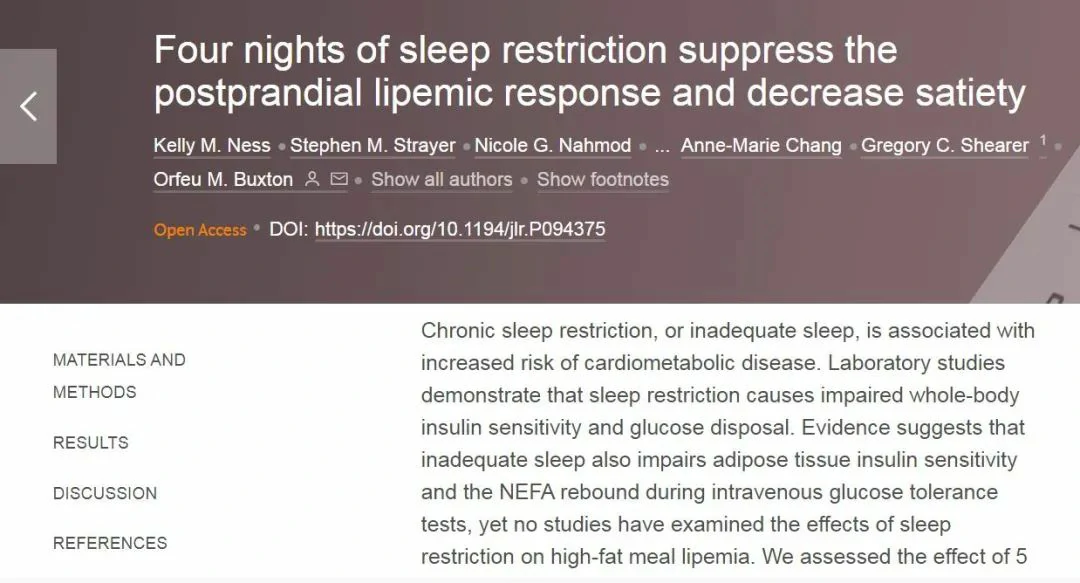
It was found that most of the participants said they were more likely to feel hungry when they were sleep-deprived than when they were getting enough sleep. Blood test results found that lack of sleep causes fat in the blood to be quickly removed after meals and stored by the body, which in turn leads to rapid weight gain.
When sleep deprivation occurs, people eat more (especially high-calorie foods) and store it as extra energy, the researchers said. This can lead to a spike in insulin, rapid fat storage, and rapid weight gain.
Therefore, to lose weight and lose fat, in addition to a reasonable diet and active exercise, you must also “sleep well”. The National Sleep Foundation recommends that adults get 7 to 9 hours of sleep each night.
It’s so easy to gain weight
It is often heard that people use “drinking cold water to gain weight” to describe how easy it is to gain weight. Some of the reasons that make people fat in life may surprise you.
don’t like the sun
Experts from the University of Southern California pointed out that the lack of vitamin D in the body can lead to the accumulation of fat in the muscles, but the vitamin D in the body can only be synthesized in sunlight. Those who like to live a “nightlife” are in danger of becoming big fat people.
skip breakfast
According to a survey published by the British “Daily Mail”, people who skip breakfast may gain 26 pounds a year.
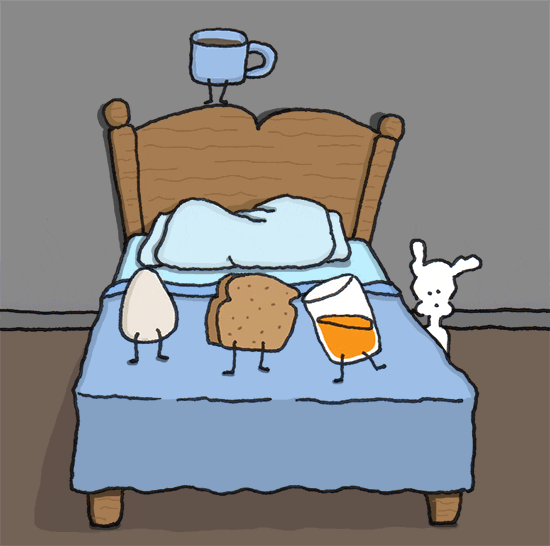
eat too fast
A joint study by the Graduate School of Okayama University and the Center for Health Management in Japan shows that eating too fast has a greater impact on weight than other eating habits such as being greasy and full.
The study showed that with little difference in calorie levels, fast eaters had a 4.4 times higher risk of gaining weight than those who ate at a normal pace, and men who ate fast were more affected than women.
Eat two meals a day
The result of long-term two meals a day is very likely: the weight loss effect is obvious at the beginning, and it will soon enter the plateau period; because this process does not make people lose too much fat, resulting in a lower metabolic rate, eat a little more, Or just resume three meals a day, and you will gain weight and gain weight.
sleep on weekends
A study by American scientists shows that sleeping on weekends can make you fat, damage your health, and even worse than lack of sleep.

People who don’t get enough sleep on weekdays and catch up on weekends typically eat more snacks than those who don’t get enough sleep regularly, which not only makes people fat but also increases the risk of diabetes, the researchers said.
Too much dust in the house
A study in Environmental Science and Technology found that unclean and dusty homes can make people fat. Duke University researchers collected dust samples from 11 residences.
It was found that the dust in 9 of them stimulated cell division and produced a large number of fat cells; in 7 of them, the fat cells were transformed into mature fat cells and new fat cells were generated, and the transformation was irreversible.
Often eat at these 4 locations
An article published in the American “Healthy Living” magazine said that where you eat can also affect your weight, and eating in 4 places may make you fat.
In the kitchen: When you walk into the kitchen, you will be “surrounded” by food, and you will end up eating more than you expected. Especially eating standing in front of the refrigerator or cupboard, or eating right out of the bag, can make it difficult to remember how much you ate.
At your desk: Eating fast while working can make your brain “forget” what you’ve eaten, so you end up feeling hungry and eating more.
In the car: When eating while driving, to avoid holding the steering wheel with one hand for a long time, I often gobble and eat faster and more.
In front of the TV: On a hungry night, the food advertisements on TV can arouse the appetite even more.
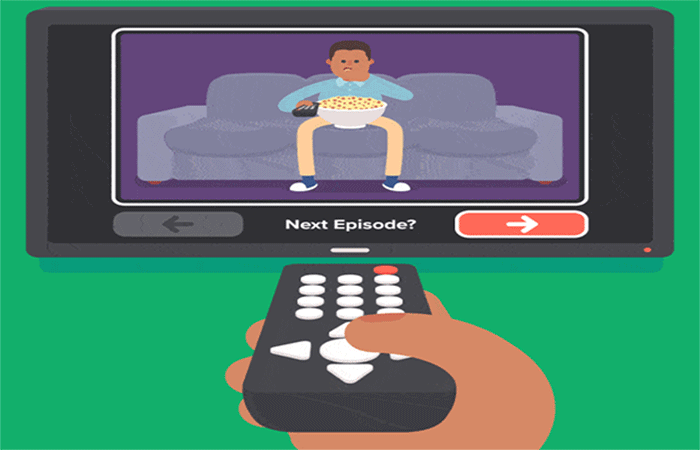
Watching the screen for too long
There is an important association between screen time and early childhood obesity. The study found that children aged 9 to 10 years old had an extra hour of screen time a day, and their body mass index (BMI) increased significantly a year later.
less social
Using data from the National Longitudinal Study on Aging, a research team from the University of British Columbia in Canada analyzed the social status of 28,000 adults aged 45 to 85 and how these social relationships affect waist circumference, body mass index, and the incidence of obesity. It turns out that women who lack social interaction are more likely to be obese.
sleep with the lights on
Exposure to artificial light while sleeping can cause weight gain in women, according to research in JAMA Internal Medicine. The results of the study showed that during a mean follow-up period of 5.7 years, women who slept with any light exposure at night had a 19% higher risk of obesity than those who had no light exposure.

Weight loss starts with lifestyle habits
Nowadays, many people are excessively pursuing “thinness” and look at their bodies with harsh eyes. Many people do not need to lose weight.
How can I tell if I need to lose weight?
Body mass index (BMI): a body type judgment index commonly used in the medical community. Body mass index = weight (kg) divided by height (m) squared, this value is between 18.5 and 23.9, which is normal. If it is higher than 23.9, you need to lose weight; if it is lower than 18.5, it is weight loss, and nutrition should be strengthened.
Body mass index does not reflect the fat distribution. Some people have a normal body mass index, but they accumulate a lot of abdominal fat and are at high risk of developing chronic diseases. Therefore, the body mass index should be combined with the waist circumference to determine whether to lose fat.
Waist circumference: It can reflect both the total amount of fat and the distribution of fat, and it is a good index for assessing the risk of chronic diseases. Waist circumference should be less than 85 cm for adult men and less than 80 cm for women.
Waist-to-hip ratio: The ratio of waist circumference to hip circumference is less than 0.9 for men and less than 0.8 for women.
Subcutaneous fat thickness: The subcutaneous fat thickness of the abdominal wall should be less than 15 mm for men and not more than 20 mm for women. This usually requires a professional sebum thickness gauge to measure.
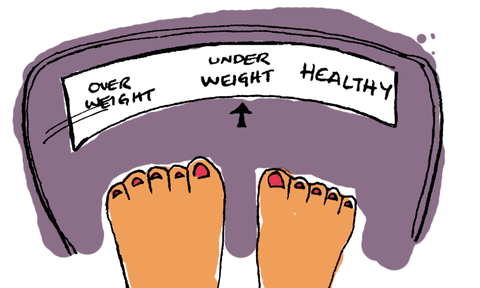
Losing weight can’t just be about speed, good living habits can help you lose weight healthily:
have a good breakfast
“Good” means fullness, that is, eating very satisfied, and at the same time ensuring adequate intake of calories and nutrients. Specifically, breakfast calories and nutrient intake should preferably account for 40% of the total daily intake, and at least 30%.
A healthy and qualified breakfast should include at least three types of food: cereals, such as oatmeal, bread, etc.; animal foods, such as meat, eggs, dairy products, etc.; and vegetables and fruits rich in vitamin C and supplementary dietary fiber ; If you eat more nuts such as pine nuts and almonds, it will be better.
As long as the collocation is reasonable, the protein is sufficient, the vitamin and mineral content is rich, and the amount of dinner is reduced accordingly, it is no problem to eat enough.

light diet
Appropriately reduce sodium intake when losing weight, and avoid pickled foods. The total intake of salt throughout the day is less than or equal to 5 grams.
Active drinking
Drink more boiled water, less or no beverages, etc.
Insist on moderate exercise
Those who want to lose weight healthily should participate in more outdoor activities, and should accumulate more than 30 to 60 minutes of activity every day. Prepare for activities before exercising, take protective measures and bask in the sun as appropriate.
Note that the amount of exercise at the beginning should be less, let the body adapt slowly, and then increase the amount of exercise appropriately. If there is discomfort during the exercise, or if you feel exhausted, you must stop exercising in time.
Don’t lose weight too fast
It is generally safe to lose 0.5 kg per week, and it is easy to accept and stick to it. If you lose weight too quickly, it may cause problems such as weakness, hair loss, depression, and arrhythmia.
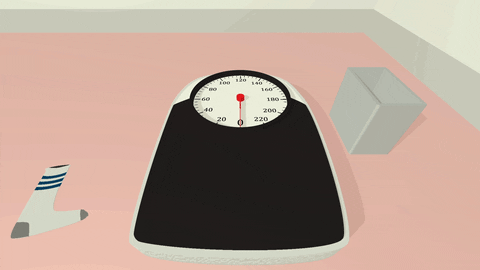 )
)
In addition, due to the rapid decomposition of fat, it will lead to an increase in ketone bodies, the metabolites of fat decomposition in the blood, causing acidosis and serious consequences.
A moderate diet and moderate exercise are the healthiest ways to lose weight. If there are no special circumstances or diseases, the use of drugs, surgery, and other methods is not recommended.